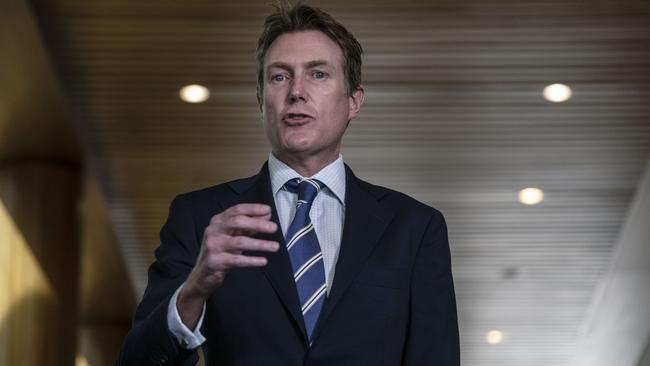Coronavirus: energy chiefs lambast ‘inflexible’ IR system
A majority of resources and energy employers claim inflexibilities has prevented them from enacting desired workplace changes during the COVID-19 pandemic.

A majority of resources and energy employers claim inflexibilities in the industrial relations system has prevented them from enacting desired workplace changes during the COVID-19 pandemic.
The survey of 100 employers, including major ASX50 companies and small and medium enterprises across the oil and gas, mining and transport sectors was conducted over the past two weeks by the Australian Mines and Metals Association, a vocal critic of the federal workplace laws.
Fifty-seven per cent of the surveyed employers said the industrial relations system had made it “difficult” or “very difficult” to implement necessary workplace changes during the pandemic.
Consultation requirements in enterprise agreements were the biggest identified barrier, with 54 per cent of respondents indicating this was preventing them from making necessary change.
Attorney-General Christian Porter has slashed the time employers need to consult on agreement changes from seven days to one. Following concerns raised by unions, Mr Porter has promised to unwind the decision if it was abused by employers.
According to the survey, 70 per cent of surveyed employers have changed, or intend to change, operational rosters to minimise labour movement. However, half of all respondents claimed they faced barriers or impediments to changing rosters.
Nearly half of employers surveyed said the Covid-19 response measures had affected more than 80 per cent of their workforce, and two-thirds had temporarily relocated employees due to travel restrictions.
AMMA chief executive Steve Knott said the survey results supported his call for the government to consider suspending industrial awards and enterprise agreements for up to six months to save more businesses and jobs from being lost to the COVID-19 crisis.
But Porter has rejected the suspension call, saying the crisis was “not the time for ambit claims for systemic or ideological changes to the IR system”.
Mr Knott said on Sunday that “these unprecedented times require business to have more agility and urgency in their decision-making to survive”.
“The Government’s measures to date – including the JobKeeper scheme and fast-tracking minimum consultation periods - are a step in the right direction, but are occurring too slowly and not offering broad enough relief to the majority of employers,” he said.
Mr Knott said important measures needing fast action were still requiring the support of third parties and the majority of the workforce.
“This brings into play things like consultation provisions, dispute resolution procedures and lengthy analysis of whether employees are ‘better off overall all’ against complex award requirements,” he said.
“The reality is Australia’s outdated industrial relations system of complex awards, restrictive enterprise agreements, lengthy consultation requirements and so called Fair Work Commission ‘assistance’ won’t save a single job, but will unnecessarily cost many.”
The survey found 47 per cent had no plans to reduce their workforces at this stage, but were expecting COVID-19 challenges to last at least six months.
“As an industry that delivers the nation $35 billion in taxes and royalties each year, and is forecast to bounce back and lead the eventual economic recovery, Australia’s resources and energy employers must be better supported in their actions to save jobs and maintain their operations,” Mr Knott said.
“The Australian community generally trusts the business community to do the right thing, and overwhelmingly it does. Now is the time to put faith in employers to do whatever is in their power, within reason, to get them and their employees through the COVID-19 waters without having to shed jobs. This requires bolder action on industrial relations policy.”




To join the conversation, please log in. Don't have an account? Register
Join the conversation, you are commenting as Logout